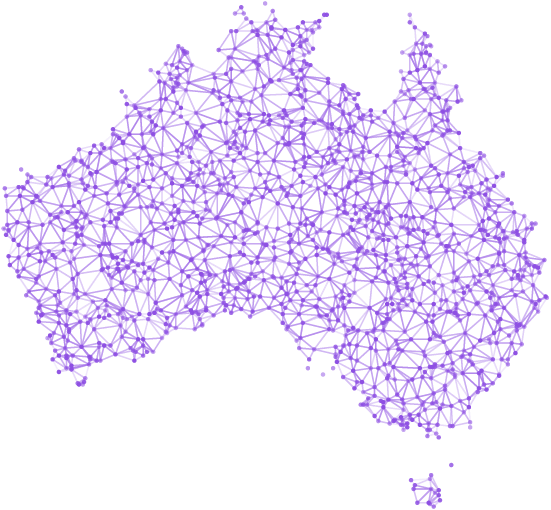Data sovereignty vs data residency.
Data residency is not data sovereignty, yet the two terms are incorrectly used interchangeably. Data sovereignty provides government with the means to prevent unvetted access by foreign contractors, support staff and entities to sensitive government data; data residency does not.
Data residency refers to the physical location of where data is stored and is an important term for commercial and taxation purposes.
Data sovereignty refers to the jurisdictional control or legal authority that can be asserted over data because it’s physical location is within jurisdictional boundaries. Data sovereignty is an important term for regulatory and data security purposes.
Macquarie Government and data sovereignty.
Our people.
200+ Australian engineers security cleared to government standards providing local support and protection.
Our data centres.
Macquarie Government owns and operates three secure data centres in Canberra and Sydney to provide your agency with complete control over Australian government data.
Australian owned.
Macquarie Government is proudly owned and operated by Australians. As a sovereign cloud provider we are not subject to changes in foreign laws or regulations that could impact access to your local data from overseas parties.

Learn more.
Data sovereignty is a cornerstone of Macquarie Government. We are and always have been Australian owned, located and staffed. We ensure our customers’ data stays here.
To learn more about data sovereignty or how Macquarie Government can help you keep your data safe contact us today for a free consultation.
Talk to us.
We are always here to answer your enquiries.
Avoid a new threat vector.
Holding data with a Global Cloud Services Provider (GCSP) exposes your data to a new threat vector – changes to international laws can impact GCSPs, which may in turn have an adverse effect on your local data.
It’s reasonable to expect data held offshore would be subject to offshore laws, but even data held within Australia by a foreign-owned GCSP may be subject to the lawful collection by another country without warning, according to the Australian Government’s Information Security Manual.
Avoid significant ongoing and potential costs.
International laws change all the time and without notice, and these changes can impact data held locally with a global cloud services provider (GCSP).
When you place your data into the hands of a GCSP it becomes susceptible to impacts from foreign law changes, even though your data resides on Australian soil. The responsibility rests with agencies to continually monitor for offshore law changes that may impact the accessibility of data by foreign parties.
The potential costs of an urgent migration from your GCSP to avoid the impact of an offshore law change can be enormous. Avoiding these potential migration costs and the cost of continually monitoring foreign laws is a significant benefit of keeping your data with a locally owned and operated cloud provider.
What’s more, GCSP pricing is determined overseas with little local consideration and is subject to greater volatility due to foreign exchange fluctuations. One last tidbit – government budgets spent on GCSP services leaks potential tax revenue offshore.
Achieve compliance assurance.
The risk of cyber security attacks is increasing – there are more threat actors (criminals, nation states, non-state terrorists, lone wolves and hacktivists), and the frequency, sophistication and impact of cyber security attacks is growing.
Governments are compelled globally to increase government and corporate regulations to improve data and system security. Think the Whole of Government Hosting Strategy, Mandatory Data Breach Notification and the Australian Signals Directorate mandatory top four mitigation strategies.
Hosting your data in Australia with an Australian-owned provider who is subject only to Australian regulations is likely to incur less compliance hurdles that a global cloud services provider.
Avoid unauthorised access.
Even though your data may be hosted locally by a global cloud service provider, their staff in various jurisdictions abroad can access your data, network and storage configuration details, and will have hypervisor access.
This circumvents the authority and control governments can exercise in their own jurisdictions.
Alternatively, governments who host their data with wholly-owned local providers with government-vetted staff can maintain control over the confidentiality, integrity and accessibility of their data.
Talk to us.
We are always here to answer your enquiries.


